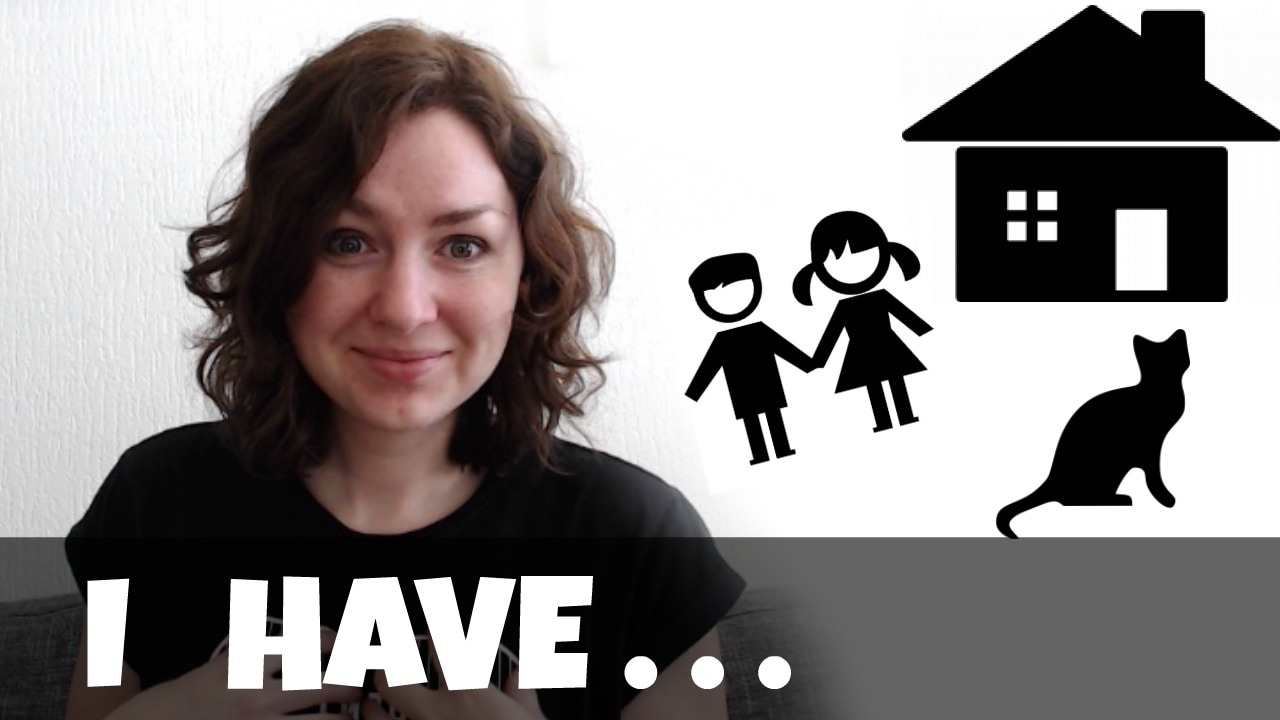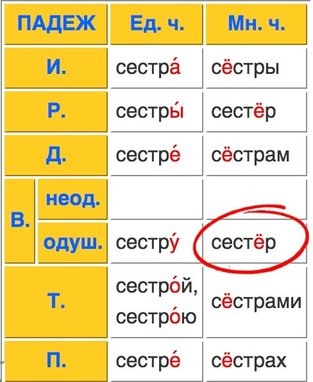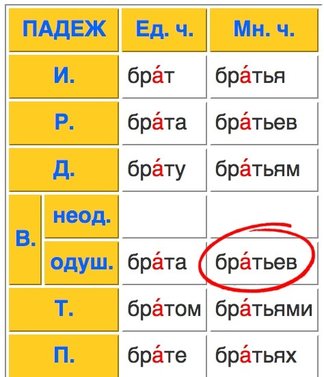|
5/20/2017
У меня есть... - I have...
You know there is a Russian word "иметь", which means "to have", but it isn't used that often, because it has a sexual connotation. Therefore we have another way to say "I have" - у меня есть, and I strongly recommend you to use this way in order to avoid awkward situations. Let's analyse the sentence "у меня есть дом". У is a preposition that can be translated into English like at, by or near (depends on a context). Меня is я (I) in the genitive case. Есть is a verb быть (to be) in the present tense. Дом (house) is a noun in the nominative case. Roughly we can translate this sentence like "at me there is a house". It sounds weird, isn't it? But you need to memorize this construction, because you will hear it a lot. Some more examples: У меня есть сестра. Её зовут Кристина. I have a sister. Her name is Kristina. У меня есть брат. Его зовут Сергей. I have a brother. His name is Sergey. Let's repeat the numbers. Do you remember in what case will be a noun after the number 2? (If you haven't seen the video about the numbers, click here to watch it.) Let's write in Russian "I have two sisters and two brothers". The nouns after 2 are in the genitive case and singular, so we need to figure out how the words "сестра - sister" and "брат - brother" are written in the genitive case. сестра ---> сестры брат ---> брата У меня есть две сестры и два брата. You probably are wondering why 2 is written in two diffent ways: две and два. It depends on the gender. Numbers 1 and 2 changes according to the gender of a noun. For example: Одна сестра (one sister; feminine) but один брат (one brother; masculine). Две сестры (two sisters) but два брата (two brothers). Other numbers don't change (don't forget such numbers as 21, 22, 31, 32, etc. they will change, because there are 1 and 2 at the end), for example: три сестры (three sisters) and три брата (three brothers). Let's write their names. In the construction меня/его/её зовут (my/his/her name is) меня/его/её is я/он/она in the accusative case. We want to write "Sisters' names are Elena and Maria. Brothers' names are Peter and Victor", we need to figure out how the words "сёстры - sisters" and "братья - brothers" are written in the accusative case. Сестёр зовут Елена и Мария. Братьев зовут Пётр и Виктор. Sisters' names are Elena and Maria. Brothers' names are Peter and Victor. Who else do you have? Some more examples: У меня есть муж. Его зовут Андрей. I have a husband. His name is Andrey. У меня есть жена. Её зовут Мария. I have a wife. Her name is Maria. If you want to make a question, the structure doesn't change at all, you only need to change intonation. У вас есть дети? Do you have kids? Да, у меня/нас есть дети. Yes, I/we have kids. If you want to say a negative sentence, for example, "I don't have kids", you should know that two things change: a verb "есть" disappears, instead of it we get a word "нет - not", and a noun after "нет" is not in the nominative case but in the genitive, so not "дети" but "детей": У меня нет детей. I don't have kids. У меня нет брата. I don't have a brother. У меня нет дома. I don't have a house. У меня нет денег. I don't have money. Some more examples with new words: У меня есть сын. I have a son. У меня есть дочь. I have a daughter. У меня есть два сына и одна дочь. I have two sons and one daughter. У меня есть подруга. I have a (female) friend. У меня есть друг. I have a (male) friend. У меня есть собака и кот. I have a dog and a cat. Vocabulary
у меня есть - I have дом - house сестра - sister брат - brother дети - kids, children сын - son дочь - daughter друг - friend (male) подруга - friend (female) собака - dog кот - cat Make a few sentences, write what you have. ;) |
Search by typing & pressing enter







